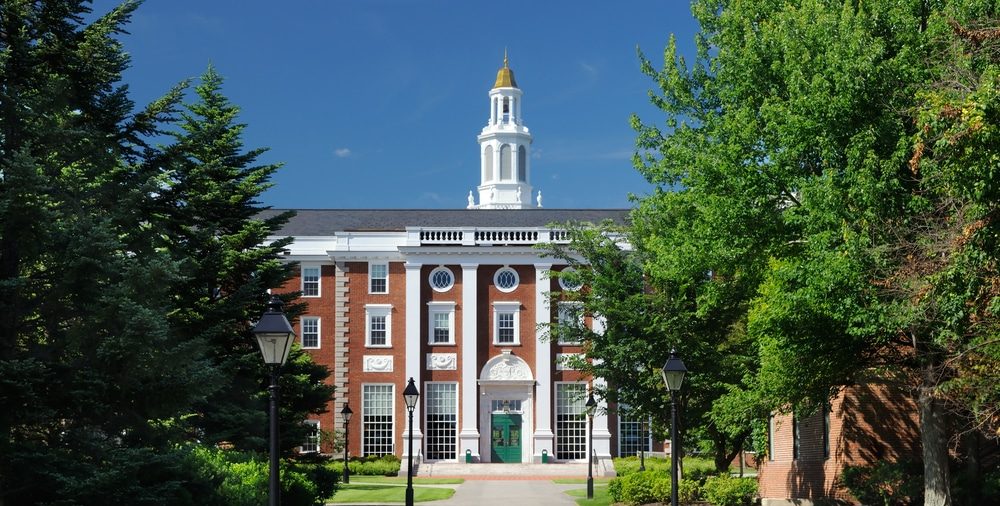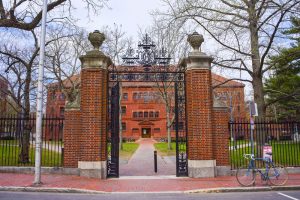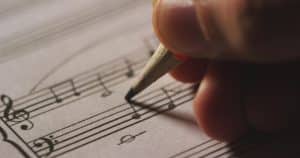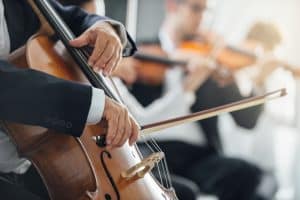Exploring Harvard’s Music Program
In the realm of music education, few programs hold as much prestige as Harvard University’s music program. Distinguished for its in-depth curriculum, talented faculty, and rich history, it continues to shape the careers of many musicians worldwide. As we delve deeper into this esteemed institution, we’ll gain an enriched understanding of its core features, curriculum offerings, experienced faculty, and the potential opportunities and challenges it provides its students.
Understanding Harvard’s Music Program
Harvard University’s Department of Music offers both undergraduate and graduate programs. Undergraduates can earn an A.B. with a concentration in music. Graduate students have the opportunity to pursue a PhD program in areas such as musicology, ethnomusicology, theory, composition, or Creative Practice and Critical Inquiry.
Harvard has also established two dual degree programs: one in partnership with the New England Conservatory, where students obtain an A.B. from Harvard and an M.M. from NEC over a span of five years. The other collaboration is with Berklee College of Music, enabling students to earn an A.B. from Harvard and either an M.M. or M.A. from Berklee within a five-year timeframe.
While they don’t provide a degree in vocal or instrumental performance, such as a B.M., M.M., or D.M.A., the emphasis on performance is evident in the music department’s coursework. Students are actively encouraged to participate in the various extracurricular music performance groups available on campus.
Harvard’s facilities are housed in the Fanny Peabody Mason Music Building. This includes classrooms, music practice rooms, the Eda Kuhn Loeb Music Library, the John Knowles Paine Concert Hall, the Harvard University Studio for Electroacoustic Composition (HUSEAC), an Ethnomusicology Lab, SoundLab, as well as faculty and administrative offices. Additionally, the Department hosts a variety of concerts, colloquia, lectures, and unique music events monthly, which are accessible to both students and the general public at no charge.
The Structure of the Program
Harvard’s music program transcends traditional boundaries of music education. Students embark on an immersive journey studying Western music from the Middle Ages to the 21st century, world music, jazz, and pop. This diverse curriculum allows students to explore different musical genres and gain a comprehensive understanding of the evolution of music throughout history.
The program is divided into theory and composition, musicology, and performance, providing students with a well-rounded education in music. In the theory and composition track, students delve into the intricacies of musical composition, learning how to create harmonies, melodies, and arrangements that captivate audiences.
The musicology track focuses on the study of music history, analyzing the cultural, social, and political contexts that shaped musical movements and trends. Lastly, the performance track hones students’ instrumental or vocal skills, allowing them to showcase their talent through solo performances, ensemble collaborations, and recitals.
Moreover, the program fosters creativity and originality, encouraging students to compose music or design innovative performances. This emphasis on artistic expression enables students to develop their unique musical voice and explore new avenues in the world of music.
The Unique Features of the Program
Apart from the emphasis on comprehensive learning, Harvard’s music program has several unique features that set it apart from other music programs. One of these features is the abundance of performance opportunities available to students. Not only do they have the chance to perform on campus, but they also have the opportunity to showcase their talents across the United States and even internationally. These performances allow students to gain valuable stage experience and exposure to different audiences and musical traditions.
Moreover, the program offers students the opportunity to learn from celebrated musicians through masterclasses and workshops. Renowned artists visit the program regularly, sharing their expertise and insights with the students. This direct interaction with industry professionals provides invaluable guidance and inspiration, helping students refine their skills and broaden their musical horizons.
In addition to this, the intimate class sizes provide an extensive interaction between students and faculty, augmenting the overall learning experience. Students have the opportunity to engage in meaningful discussions, receive personalized feedback, and collaborate closely with their professors. This close-knit community fosters a supportive and nurturing environment, allowing students to thrive and reach their full potential.
Overall, Harvard University’s music program offers a comprehensive and enriching education in music. Its diverse curriculum, emphasis on creativity, and unique features prepare students to become well-rounded musicians who can significantly impact the world of music.
The Curriculum of the Harvard Music Program
Overview of the Courses Offered
The curriculum at Harvard’s Department of Music is designed to provide students with a comprehensive and well-rounded education in music. It comprises a wide array of courses, including but not limited to music theory, music history, composition, music technology, and performance practice. These courses are carefully crafted to refine students’ understanding of music, enhancing their theoretical knowledge and practical abilities.
Through the study of music theory, students gain a deep understanding of the fundamental principles that underlie all forms of music. They learn about scales, chords, and rhythms and how these elements come together to create harmonious compositions. As they progress in their studies, students delve into more complex topics such as harmonic analysis and the study of tonality. This theoretical foundation empowers students to comprehend complex musical architectures and enhances their interpretative abilities.
Moreover, Harvard’s music program recognizes the importance of exploring different musical styles and genres. In addition to the core courses, students have the opportunity to take electives such as World Music, Opera Studies, and Jazz Theory. These courses offer a broad perspective on various musical traditions, allowing students to expand their horizons and develop a well-rounded musical sensibility.
The Role of Theory in the Curriculum
The study of musical theory is a cornerstone of Harvard’s music program. It is the backbone for students to build their musical knowledge and skills. Starting with fundamental knowledge of scales, chords, and rhythms, students delve into more complex topics that enable them to analyze and interpret music with a critical eye.
Students learn to identify and analyze music’s underlying structures and patterns through theoretical studies. They explore the relationships between different musical elements and develop the ability to discern the intentions and emotions conveyed by composers. This theoretical foundation enhances their understanding of music and empowers them to express themselves creatively as composers and performers.
Furthermore, theoretical studies in the Department of Music are not isolated from practical applications. On the contrary, they serve as a bridge between theory and performance. Students are encouraged to apply the knowledge they acquire in the classroom to real-life performing scenarios. Doing so reinforces the connections between theory and practice, deepening their understanding of music and honing their performance skills.
The Importance of Performance in the Curriculum
Harvard’s music program highly regards performance’s role in musicians’ development. It recognizes that music is meant to be experienced and shared and that performing is essential to a musician’s journey. As such, the program encourages its students to actively engage in performance opportunities throughout their studies.
Through regular recitals, concerts, and public performances, students have the chance to showcase their talents and gain invaluable exposure. These performances provide platforms for students to apply the knowledge and skills acquired in the classroom to real-life musical contexts. They also offer opportunities for students to collaborate with their peers and learn from experienced musicians, further enriching their musical education.
Moreover, the experience of performing in front of an audience helps students build confidence and stage presence. It allows them to develop their technical abilities and express themselves artistically. By actively participating in performances, students refine their musical skills and develop a deeper appreciation of music and its power to connect people.
Ultimately, the curriculum of Harvard University’s music program is designed to provide students with a comprehensive education in music. Through a combination of theoretical studies, practical applications, and performance opportunities, students are equipped with the knowledge, skills, and experiences necessary to become well-rounded musicians who can contribute meaningfully to the world of music.
The Faculty at Harvard’s Department of Music
The faculty comprises highly esteemed musicians and academicians from around the world. They possess a blend of professional experience and academic excellence that collectively enrich the learning environment. Many faculty members are internationally recognized performers, scholars, and composers with substantial contributions to the field of music.
For example, Paul and Catherine Buttenwieser University Professor Carolyn Abbate specializes in opera, musical philosophy, and sound studies. Her works have been rendered in multiple languages, and she is also known for her translation skills, with her latest translation being Vladimir Jankélévitch’s “La musique et l’ineffable.” Currently, she delves into the study of playful sound technologies and auditory relics from the 19th and early 20th centuries, focusing on their roles in the historical context of hearing and misinterpretation.
Richard K. Wolf, a Professor specializing in Music and South Asian Studies, joined the Music Department at Harvard in 1999. Since 1982, he has been immersed in ethnomusicological studies in South Asia and extended his research to Central Asia in 2012. Wolf has penned two individual books and overseen three collections, writing on diverse subjects. These include the socio-cultural “style” of South Indian classical music, the Kota tribal community’s perceptions of space, time, and music in the Nilgiri Hills of southern India, and the role of drumming, “recitation,” and music in public Islamic settings in India and Pakistan.
Another faculty member, Alexander Rehding, a Fanny Peabody Professor of Music and Graduate Advisor in Theory, is an expert in music theory, emphasizing intellectual history and media theory. His diverse interests span from Ancient Greek music to the Eurovision Song Contest, and even extend to cosmic dimensions. He has enriched fields such as Riemannian theory, historical music theory, sound studies, and media archaeology, while also delving into digital humanities and ecomusicology. Collaborating with the Sound Lab, Rehding’s latest investigations prominently examine the interplay between music theory, culture, and technology.
Faculty members actively contribute to the development of the curriculum, ensuring that it stays relevant and comprehensive. They regularly collaborate with colleagues in the industry to stay updated on emerging trends and advancements in music. This collaboration allows them to incorporate cutting-edge techniques and technologies into the program, equipping students with the skills necessary to thrive in the ever-evolving music landscape.
The Role of the Faculty in Student Development
The faculty plays a pivotal role in student development, providing guidance beyond textbook knowledge. They act as mentors, fostering the intellectual development of the students and inspiring them to strive for greatness.
Through weekly studio classes, students have the opportunity to perform in front of their peers and receive constructive feedback from faculty members. This personalized attention helps students refine their technique, interpretative skills, and stage presence. Additionally, faculty members organize regular performance opportunities for students, allowing them to showcase their talents and gain valuable stage experience.
The faculty’s vast professional network also provides students with connections that could potentially benefit their future careers. They regularly invite guest artists, conductors, and industry professionals to give masterclasses and workshops. These interactions expose students to different perspectives and open doors to potential collaborations and performance opportunities.
Furthermore, faculty members are committed to nurturing the holistic development of students. They encourage students to explore interdisciplinary collaborations, such as collaborating with visual artists or dancers, to create innovative, boundary-pushing performances. This interdisciplinary approach broadens students’ artistic horizons and encourages them to think outside the box.
Through workshops, seminars, and one-on-one counseling, faculty members assist students in honing their skills and exploring their potential in music. They provide guidance on career paths, audition preparation, and repertoire selection. Faculty members also offer mentorship beyond the classroom, supporting students in their personal and artistic growth.
Overall, Harvard’s Department of Music faculty goes above and beyond to create a nurturing and inspiring environment for students. Their expertise, mentorship, and dedication to student development make them invaluable assets to the program, shaping the next generation of musicians and music scholars.
The Opportunities and Challenges in Harvard’s Music Program
Beyond the classroom, Harvard University’s music program provides a range of extracurricular opportunities. Students can audition for ensembles, perform in student-led recitals, and participate in musical theatre, jazz bands, and orchestras. These experiences help students to cultivate teamwork, leadership, and communication skills while enhancing their musical prowess.
Furthermore, the Program often hosts guest musicians and scholars for lectures, performances, and workshops, giving students a chance to learn from the best in the field.
Studying at Harvard is not without its challenges. The intensive coursework, rigorous performance schedule, and high expectations can be overwhelming. However, these challenges can be successfully overcome with persistent efforts and the ability to manage time efficiently.
Moreover, Harvard’s supportive faculty, resources, and inclusive community can make this journey less daunting and more fulfilling. It is essential to remember that these challenges are stepping stones to greater achievement and success.
The Impact of Harvard’s Music Program on Careers
The Career Paths of Graduates
Graduates from Harvard’s music program find successful careers in a variety of fields. Many become professional musicians, performing in prestigious venues around the world. Some pursue careers in academia as music professors or researchers. Some graduates have found success in related fields such as arts administration, music therapy, and music journalism.
The program shapes artistically successful graduates and critical thinkers and problem solvers who can adapt to diverse professional settings.
The Role of the Program in Shaping Music Careers
Harvard’s music program plays a significant role in shaping the careers of its graduates. The rigorous academic training, practical performance experience, and broad-based curriculum equip students with skills that are highly valued in the professional world.
Furthermore, the program’s reputation of excellence and the strong network of alumni often open doors to numerous opportunities in the music industry and beyond. Indeed, it shapes its students into accomplished musicians ready to make their mark in the world of music.
If you need help putting the finishing touches on your college applications, at AdmissionSight, we have over 10 years of experience guiding students through the competitive admissions process.
AdmissionSight can help you put your best foot forward when applying to college this fall. Contact us today for more information on our services.









































